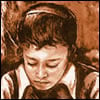What could 100 teachers, educators and principals possibly do in a Newark, N.J. , hotel on an early July morning? Think about their students, of course. While the latter enjoyed camps, canoeing and maybe a little whitewater rafting, the women that convened in the Robert Treat Conference Center spent last week exploring new and innovative ways to influence their students.
But they knew what they came for and they'd do it again.
"I look forward to this every summer," said Shifra Landa, referring to the ninth annual Women's Education Conference organized by the Chinuch Office, a division of Merkos L'Inyonei Chinuch, Chabad-Lubavitch's educational arm.
Landa, a 17-year veteran at the head of the classroom, traveled the 1,000 miles from St. Louis, Mo., where she teaches in the Epstein Hebrew Academy to attend the conference. In her eyes, lectures titled Assessment for Classroom Teachers and Can Vision Therapy Mitigate Reading Problems were "fascinating." Despite her experience, she said she is always willing to adapt her teaching methods to better engage her students.
Indeed, many things have changed in educational theory during her career.
"Auditory-based learning was the strongest pathway in the past," said Landa. "Today things are more visually stimulated."
In addition, she said, "Teachers were focused on what to teach and how to present material. But there has been a shift in how children process information. You need to be listening to them," rather then yourself.
Spirit Sinai, an afternoon extracurricular program Landa created, is an illustration of what currently works, she said. The seven-year-old after-school collection of activities has "a child-centered, individual learning style approach" where Jewish kids who may not necessarily come from religious homes are able to advance in Judaic studies with close attention.
Dedication to their mission was evident as these successful educators worked to improve and sharpen their tutoring skills. They listened intently to a presentation on the Arrowsmith Program, a cognitive-based methodology for teaching students with learning disabilities; the Reggio Emilia approach to preschool education; and Peter Senge's Five Disciplines of Learning in the same eagerness that they would have praised had it been demonstrated by a student.
For Rabbi Nochem Kaplan of the Brooklyn-based Chinuch Office, such dedication wasn't a bolt from the blue. The participants, he said, came "to hone their own skills, examine how they test children and why, and if what we do is [still] valid."
Or as the motto – hung on the doorknobs of participants' hotel rooms – went at a similar conference held recently in Israel: "You're opening a door that will open lots of doors for you."
The Chinuch Office's conference for men will be at the end of this month.
A Constant Challenge

And while the teachers may not have all left determined to implement every single approach discussed, Kaplan, a former principal from Philadelphia, said that it's important to keep educators challenged: "The conference serves to strengthen and increase their abilities. It's like exchanging an old vehicle for a new one with four-wheel drive and air bags. We introduce new ideas and ways. Many get excited, some remain skeptical, but it gets them thinking."
In Newark, it also got them talking among each other.
At mealtime, the educators were seated in groupings corresponding to the grades they teach in an effort to get the creative juices flowing. The ensuing discussions and the views reflected in them varied – Malka Gurkov's concern over alternative testing in Massachusetts didn't exactly reflect Chana Gorovitz's view of the diagnostic tool as it applied to the mostly-religious Beth Rivkah schools in Brooklyn's Crown Heights section, for instance.
Rivkah Denburg, who arrived in Margate, Fla. as an emissary of the Lubavitcher Rebbe, Rabbi Menachem Mendel Schneerson, of righteous memory, 20 years ago, told of opening a school years ago in an apartment. There were only four children enrolled that first year, but today some 360 students call the Hebrew Academy their educational home.
The school serves children from the infant years to Grade 11; its student body represents a cross section of American Jewish life, with kids coming from unaffiliated homes, Chassidic homes and everything in between. Pfc. Daniel J. Agami, the 25-year-old affectionately known as "GI Jew" who was killed in Baghdad last month, was a graduate.
What was on Denburg's mind at the conference was "how to realistically assure that our essential message is being internalized," she said. "Jewish for us is not only homework and tests but actual life. To act and talk" accordingly. For that, teachers invite pupils to their home for a Shabbat meal, meet parents after hours and "make sure no kid falls through the cracks."
To do all of that and still balance a budget can be daunting, to say the least. But overall, she said, "although the pay is not close to what the teachers deserve, our accomplishments are tangible. When you see students who finish college proud of their Judaism, it's rewarding and you feel meaning."









Start a Discussion